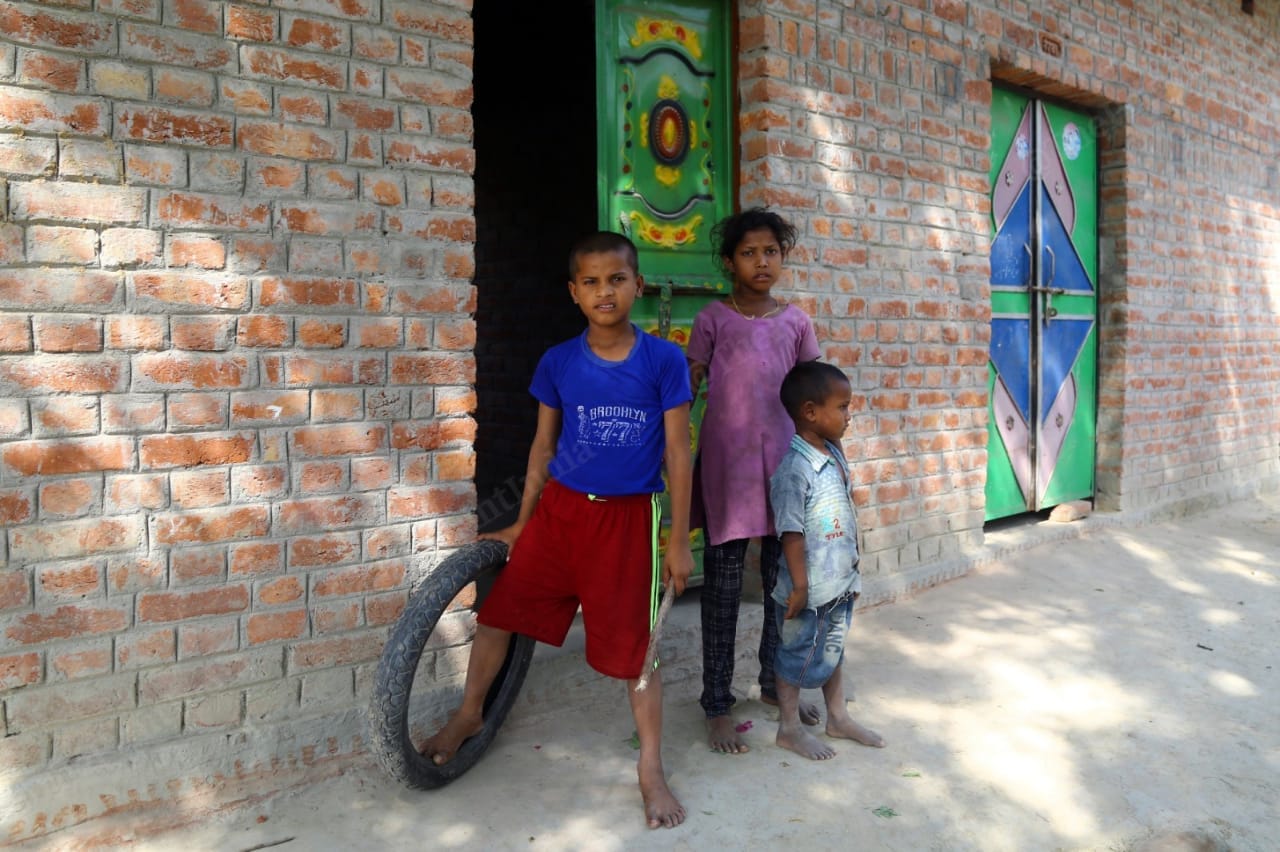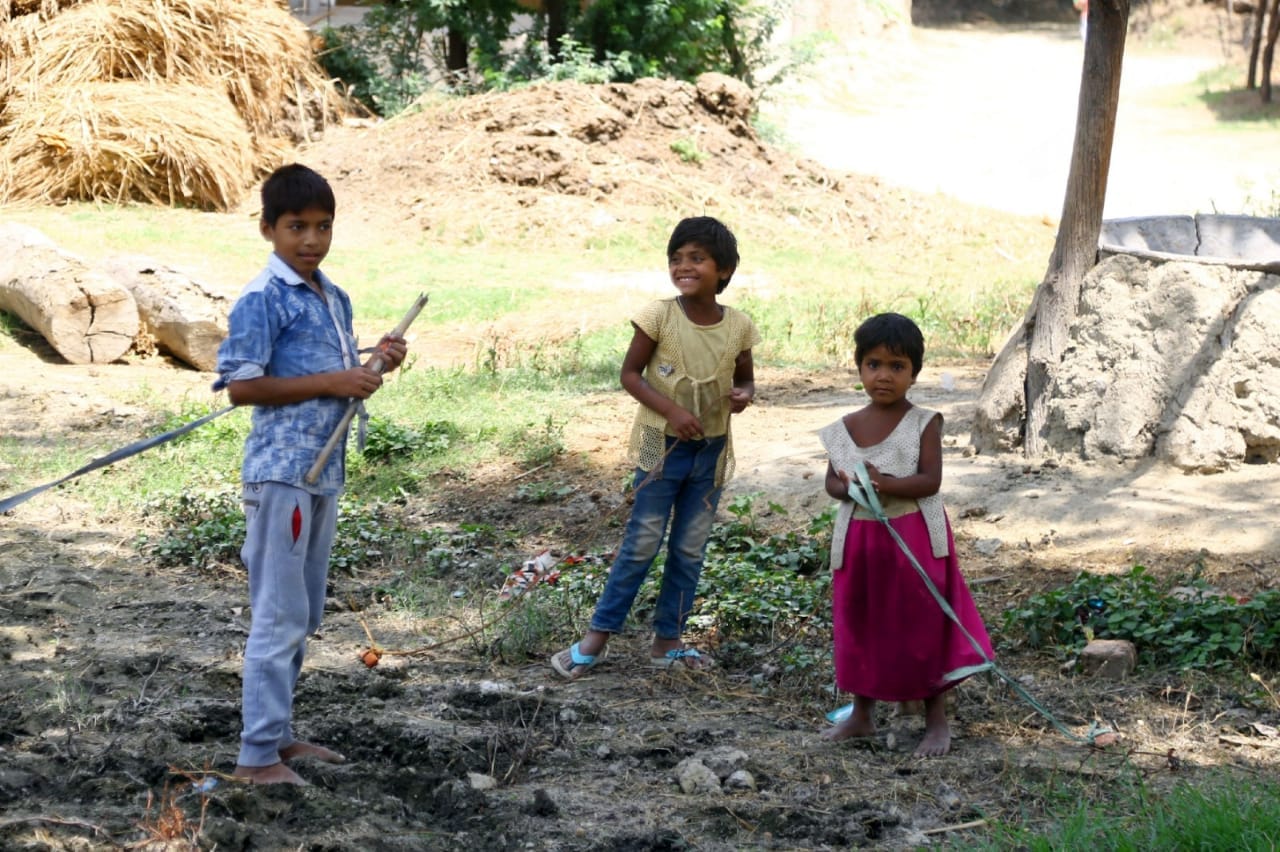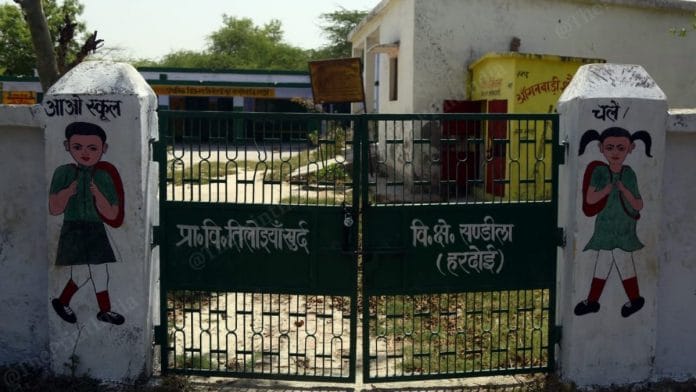Hardoi: Ten-year-old Nidhi aspires to become a police officer while her friend Jyoti wants to become a doctor. But Covid-19 has put their dreams on hold for now.
Unlike their urban counterparts, who have been sitting through online classes and corresponding with schools using technology, students in rural India face the near-insurmountable challenge of not having a smartphone or a laptop.
The rising Covid-19 cases in India have not only kept businesses and ministries shut for the most part, but have also ensured that educational institutions remain closed. This led to the Ministry of Human Resource Development (HRD) and state governments to impress upon schools and colleges to find alternate strategies. Much like all other sectors, this has meant relying heavily on internet connectivity, mobile apps and technology. But for lakhs of families residing in villages, this has automatically filtered them out of the new system.

“Before the lockdown our classes were being conducted, but since then no one has contacted us. I attend a government school. My teacher or principal has not called so far. I study at home but my parents are unable to answer my queries as they are not able to understand much,” said Nidhi, a resident of Tiloiya Khurd village in Uttar Pradesh’s Hardoi district.
When ThePrint visited the village on 1 May, most of the students were busy playing in the fields while others were helping out their parents with housework. A number of villagers have a basic phone, but not a smartphone, they said.
Also read: ‘Easier to survive in village’ — it’s a long journey home for Delhi labourers with no work
Govt needs to step up, say parents
Parents are quite upset that the district administration and school authorities have not even taken up the issue.
“My sister-in-law who lives in Delhi called and asked whether my son was getting any homework through WhatsApp and online classes. I told her no one has contacted us. Mere bache toh peeche reh jayenge (my children will be left behind). Government should do something about this. The lockdown has now been extended, so when will my kids start learning again?” she said.
Others say education is now “non-existent”.
“Yahan sarkari schools ki haalat waise hee itni kharab thi ab toh school hee nahi hai (the condition of government schools is already so bad, now it’s not even there),” said Rashmi, a parent.
Many of the parents said they were not educated themselves and hence could not tutor their children at home.
“We could not study and had to stay back and work in the village. I don’t want the same to happen to my kids. This is why I admitted them to a private school, so that they could go to big cities for higher education,” said Sunil, a resident of Hasna Pur, a village in Hardoi district
“But now with schools shut and no scope for online education, what will happen to their future? Government should look into this,” he added.

Some of the parents are now planning to approach the district magistrate of the area and suggest opening schools in shifts to ensure education is not affected.
“There is ample space in the primary school building to hold classes in a batch of 15. Social distancing can be maintained and students will also not get left behind as classes are taking place in cities,” said Kiran, a resident of the village.
Also read: Homes turn into classrooms, phones & laptops replace books as schools prepare for new year
Onus on district administration
As online classes are being held during the lockdown, the HRD ministry has made arrangements, including online portals and educational channels through Direct to Home TV, for students to continue learning. But, villagers in Hardoi say these benefits aren’t reaching rural areas.
“For now, schools will have early summer vacation. By June end, we will have classes by Swayamprabha TV and Radio. Private schools are carrying out some classes online and a few schools like KVs (Kendriya Vidyalayas) are also doing e-classes to a minor extent,” said a senior HRD official who did not want to be named.
“The district administration should make some arrangements that the future of these village students is not affected. At the same time, as the Modi government has said online education or mobile education should continue, then at least here they should start schools in shifts so that their classes are not impacted,” said Rashid Ali Warsi, president of National Development Foundation Trust in Hardoi.
“The local administration should also look into this. This is a village and we don’t have such digital infrastructure. Gaon mai logo ke paas keypad waale phone nahi hai toh android phone toh dur ki baat hai. They should make efforts to start schools that are shut.”
When ThePrint reached out to UP’s Primary Education Minister Satish Dwivedi, he said reopening schools was not an option until the pandemic situation was under control, but said council schools were using basic technology to aid learning.
“Around 30 to 35 lakh students of council schools are studying by joining WhatsApp group of teachers. Apart from this, Doordarshan Uttar Pradesh, All India Radio and other internet-based platforms are also being used,” he said.
“We will not give permission to open schools in any way until the situation is normal because we cannot compromise on the safety of children,” Dwivedi added.
Also read: Lucknow Covid hotspots named after mosques, Yogi govt draws flak for ‘communalising’ illness






